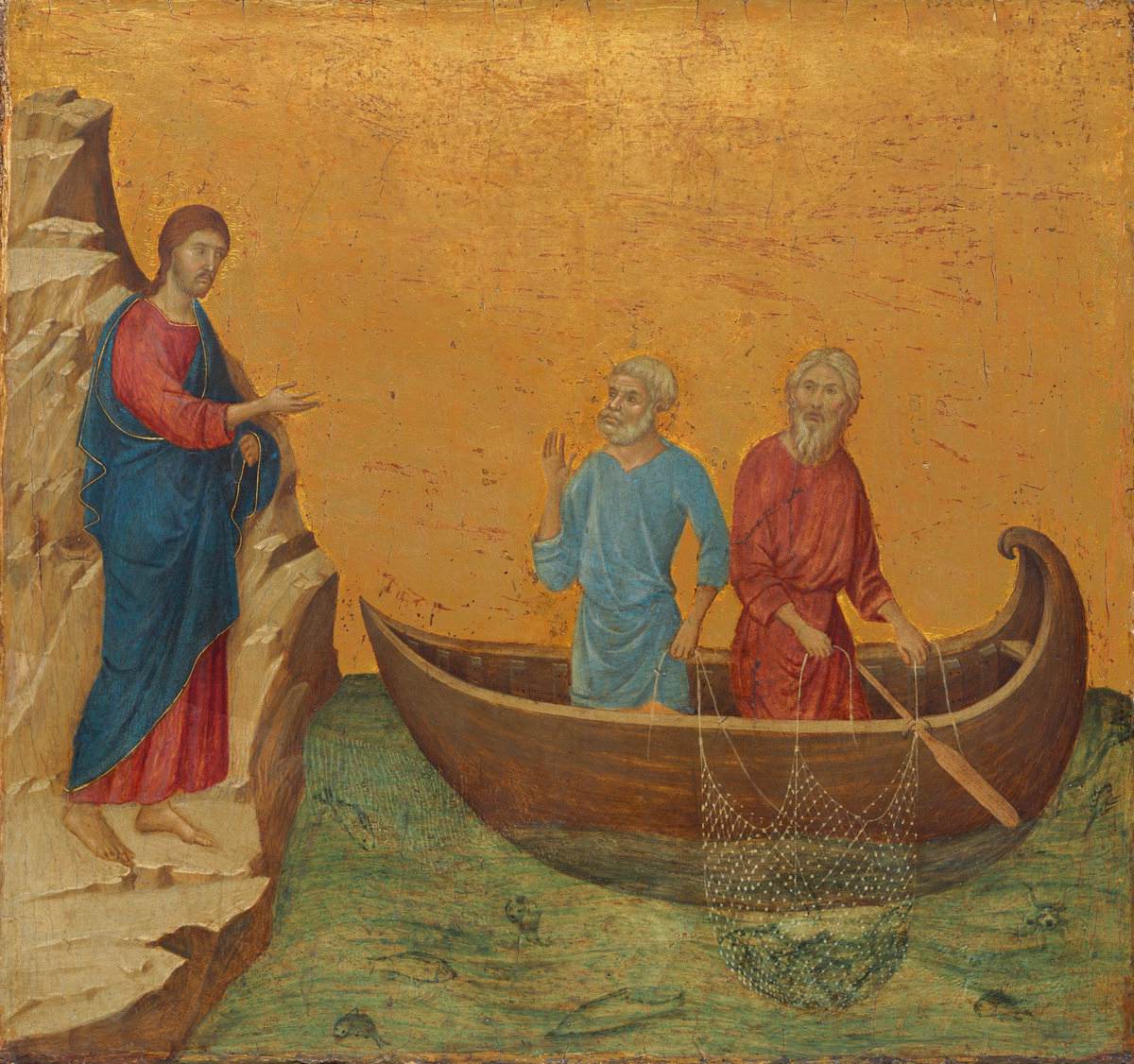Description
The painting Calling of Peter and Andrew (scene 4) by the Italian artist Duccio Di Buoninsegna is a masterpiece of late Gothic art. This painting, originally measuring 44 x 46 cm, is one of six scenes that are part of the cycle of scenes from the life of Christ that Duccio painted for the Siena Cathedral.
One of the most interesting features of this painting is its artistic style. Duccio was one of the first artists to use the chiaroscuro technique, which consists of creating contrasts between illuminated areas and shadows to give figures depth and volume. In this painting, we can see how the figures of Christ and the apostles are delicately and realistically modeled, thanks to the chiaroscuro technique.
The composition of the painting is also remarkable. Duccio uses the technique of perspective to create the illusion of depth in the scene. The figure of Christ is in the foreground, while the apostles Peter and Andrew are in the background, creating a sense of distance between them. Furthermore, the figure of Christ is surrounded by a golden halo, which gives it a divine aura.
Color is also an interesting aspect of this painting. Duccio uses a palette of soft and delicate colors, which contrast with the golden glow of Christ's halo. The shades of blue and red are especially noteworthy, since they are used to highlight the figures of Pedro and Andrés.
The history of the painting is also fascinating. This scene represents the moment when Christ calls Peter and Andrew to become his disciples. The painting is a faithful representation of the biblical passage, and Duccio manages to capture the excitement and amazement of the apostles at being called by Christ.
Lastly, there are some little-known aspects of this painting that are worth mentioning. For example, Duccio is believed to have used the encaustic technique, which involves mixing pigments with hot wax, to create the painting. In addition, it is known that the painting was restored several times over the centuries, which has allowed it to be preserved in excellent condition to this day.

